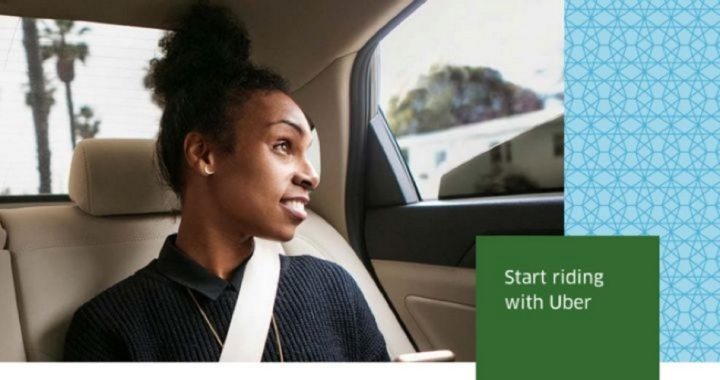
In what could spell the end of Uber (and by inference other digital information providers such as Lyft and Airbnb) in Europe, an advisor to the European Court of Justice (ECJ) has recommended that the court treat Uber as a “transportation service” and not a digital information service.
Advocate General Maciej Szpunar, a Polish lawyer, whose opinion carries such great weight among the 15 judges making up the ECJ that they usually follow it, said on Thursday: “The Uber electronic platform, whilst innovative, falls within the field of transport. Uber can thus be required to obtain the necessary licenses and authorizations under national law.”
Translation: Uber must now look and act like Big Taxi. Drivers cannot be “amateurs” but must undergo training and obtain special chauffeur’s licenses, purchase additional specific insurance coverages, put into their automobiles meters and seat sensors (so the government will know who’s being driven where) and video cameras (so the driver can keep an eye on his passengers), and so forth.
If the court takes Szpunar’s advice and rules against Uber, and if Uber decides that the game just isn’t worth the candle and leaves, that will strand 120,000 Uber drivers who currently use the app to receive hails from an estimated 7.5 million Eurozone citizens who like the cheaper, faster, safer, and oftentimes friendlier service than that provided by the local taxi cartels.
Szpunar, a lawyer without a minute of experience in the real world or apparently any understanding of how the free market works, added:
[Uber drivers] do not pursue an autonomous activity that is independent of the platform. On the contrary, that activity exists because of the platform, without which it would have no sense.
The service amounts to the organization and management of a comprehensive system for on-demand urban transport.
In the words of former President Ronald Reagan: “If it moves, regulate it!”
Uber has repeatedly made its case that it is “an information society services provider” and not a taxi company but its commonsense pleas have repeatedly fallen on deaf ears. As Uber spokeswoman Marloes van der Laan expressed it: “Laws that are created to prevent the development of such new technologies block innovation, [stifle] economic opportunities and [limit] choice for the consumer.”
The case to be decided by the full panel in June began with a member of the Elite Taxi cartel located in Barcelona suing Uber in 2014 over its innovative business model that was taking business away from it. Uber was, it was claimed in the lawsuit, “competing unfairly” by utilizing a new business model that provided better customer service at lower prices.
Lawyer Szpunar holds degrees in law, worked for nearly a decade as a private lawyer, served as undersecretary of state in the Office of the Committee for European Integration and then in the Ministry of Foreign Affairs. He represented the Polish government in numerous cases brought before the European Union’s judicature and served as head of a Polish delegation negotiating a treaty with the EU.
In other words, Lawyer Szpunar has apparently not spent one minute in the private sector and may thus be safely called a “statist,” seeking government regulation of anything that moves.
Uber is not without options. First, the ECJ may decide that Lawyer Szpunar is simply wrong, that the business model introduced by Uber and others are of such benefit that jobs will be created where there were none before, that customers will be served better at lower costs, and that ancillary benefits will ripple outward (lower accidents, fewer DUIs, less traffic, etc.) to such an extent that it rules in favor of Uber. A cynic would hold that, in the English language, the chances of such a ruling “would be between slim and none.”
Uber could do what it did last December 2015 in Hamburg, Frankfurt, and Dusseldorf: It left. Aside from demanding that Uber drivers obtain a “passenger transport license” (for a fee, of course), along with other onerous legal requirements, those cities’ rules to be applied to Uber would have prevented its drivers from offering a superior service at lower costs, exactly as the existing taxi cartels intended.
Uber could do what it just did in Denmark in March in the face of demands that its drivers install “seat occupancy sensors” and “toll meters” and video cameras: It shut down its operations there, stranding some 2,000 drivers who were serving an estimated 300,000 Danes in Copenhagen where Uber was operating.
Lawyer Szpunar is, broadly speaking, a Luddite in suit and tie. Luddites met in Nottinghamshire, England, in November 1811 and smashed innovative weaving machinery that threatened their livelihoods. It was a protest against improvements in the industry that brought down the costs of clothing substantially, benefitting the consumer but putting hand weavers out of business. Then, the British government sought to suppress the Luddite movement with a mass trial at York in January 1813. Today, Lawyer Szpunar seeks instead to suppress the weavers with their vastly more efficient stocking and cropping frames.
Photo: Image is a screen shot from Uber ad page
An Ivy League graduate and former investment advisor, Bob is a regular contributor to The New American magazine and blogs frequently at LightFromTheRight.com, primarily on economics and politics. He can be reached at [email protected].



